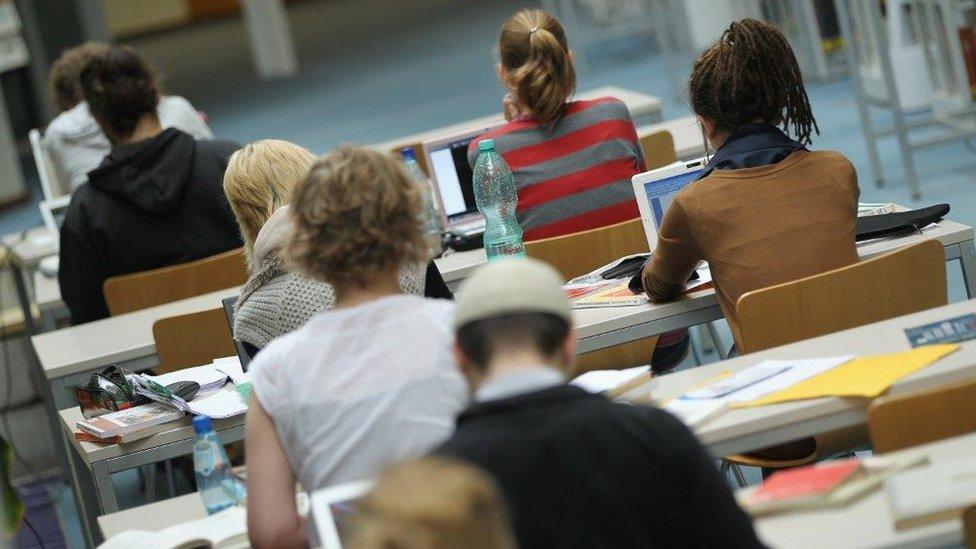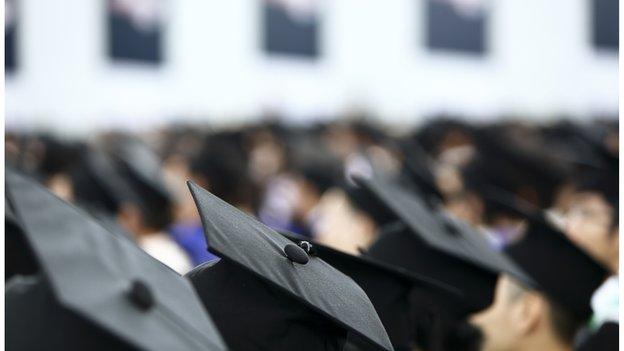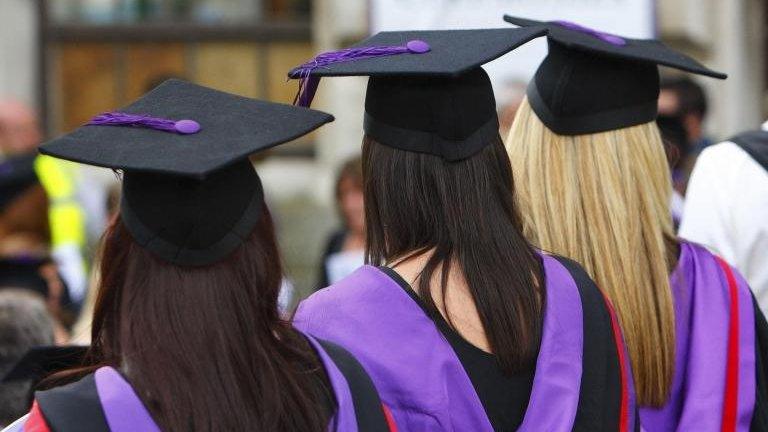Graduate debt 'a third of average mortgage', says charity
- Published

New graduates will owe the equivalent of a third of the average mortgage, says The Money Charity
New graduates in England face average debt levels of more than a third of the average mortgage, research suggests.
When they start paying back their maintenance and tuition loans, this year's graduates will owe at least £41,000, The Money Charity says.
Average outstanding mortgage debt is £117,162, the researchers say.
The government says the student loans system is fair and sustainable and that higher education boosts employability and earnings.
Rising rents
Rising maintenance loans and the higher tuition fees of £9,000 a year for students who started their degrees in 2012 or later have led to a hike in debt, the charity says.
The first students on the higher fees graduated last summer and, under the current rules, those earning more than £21,000 began paying back their loans in April.
The sum owed by students has risen steadily for the past decade, tripling since 2003, the charity calculates., external
"Much of this is driven by the introduction and gradual rise of tuition fees," the researchers said.
"The other, often overlooked, driver of rising student debt is the runaway cost of accommodation, which requires ever larger maintenance loans just to keep up."

Graduates start paying back their loans once they earn more than £21,000
A study, external by the charity last year warned that average yearly rents outside London had grown by £277 in a year between 2014 and 2015, with maintenance loans and grants failing to keep pace.
University maintenance grants for lower income student in England Wales are due to be scrapped from next month.
Meanwhile, a petition, external against government plans to freeze the repayment threshold for student loans at £21,000 instead of increasing it with average earnings as was originally promised now stands at more than 130,000 signatures, and the issue has been debated in Parliament.
"For nearly half the young people in the UK, becoming a student will be the first step into adult life, with all the financial responsibilities that brings. We worry that these early, formative experiences of debt will leave a lasting legacy," said The Money Charity chief executive Michelle Highman.
"Normalising large quantities of debt right at the start of people's financial independence risks setting them up to fail.
"The size of these sums may also affect later borrowing such as loans and mortgages."
'Fair system'
The government says higher education boosts employability and earnings and the student loans system is fair and sustainable "as the [Organisation for Economic Co-operation and Development] OECD has recognised".
Ministers say the current system removes financial barriers for anyone hoping to study, with outstanding debt written off after 30 years.
Scotland does not charge fees for first-time Scottish undergraduates studying in Scotland.
Fees in Wales can be up to £9,000, but the Welsh government pays £5,100 of this for Welsh students.
Northern Irish students studying in Northern Ireland pay £3,925 a year.
- Published1 August 2016

- Published8 July 2015

- Published31 May 2016

- Published13 May 2016
